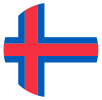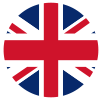HISTORY
Christian í Grótinum's shipowning ventures started in 1971, when Palli Rasmussen, Jákup Ziskason and Kristian Martin Rasmussen formed a shipowning company. The company's first fishing vessel was the salt fish longliner M/S Borðoyanes, which was active in the Flemish Cap. 1975 saw the arrival of M/S Christian í Grótinum, built at the shipyard in Skáli.
The first M/S Christian í Grótinum remained in the company's fleet until 1997. It played an important role in the early days of the pelagic industry in the Faroe Islands, which had both good and bad years. The pelagic industry struggled in the 1980s, which made the company look to new avenues. This resulted in the company moving its activities to South Africa, and M/S Christian í Grótinum sailed from Port Elisabeth during these years.
The company's activities were brought back to the Faroe Islands in 1992 and reorganised around Kristian Martin Rasmussen's sons, who also became joint owners of the company. Today Kristian Martin Rasmussen, Jón Rasmussen, Eyðun Rasmussen and Bogi Rasmussen each own 25% of the company.
After a few years of successful blue whiting fishery, the confidence in a bright future for the pelagic industry grew. In 1997 the company signed a contract with the brothers Helge and Ole Rasmus Møgster to build a new M/S Christian í Grótinum. The new vessel arrived in 1998 and marked a new horizon for the company and the pelagic industry in the Faroe Islands as a whole.
In 1999 Christian í Grótinum Ltd purchased Hvalnes Ltd, which owned and managed the seine vessel M/S Norðborg. At the same time, the company set out a new strategy to start processing and freezing its fish products at sea. In 2000 the company bought a vessel from Norway for this purpose. In the years that followed, the company continued to implement the strategy that it pursues to this day - i.e. to process as much of the company's catch as possible to high quality fish products that can be sold to clients around the world.
A new M/S Norðborg came in 2009. It was built at the shipyard in Asmar, Chile. At the same time as M/S Norðborg arrived in the Faroe Islands, M/S Christian í Grótinum was sold back to Chile, where it had originated 10 years earlier. The new vessel signified a new chapter with new business opportunities for the company.
M/S Norðborg is equipped with a fully automated processing factory that can process and freeze as many as 200 tonnes of fish per day, while also producing fishmeal and fish oil from the remains. This means that M/S Norðborg can utilise every kilo of the ship's catch.
When the quota allowances increased in the years 2011 and 2012, the company bought another ship to assist M/S Norðborg. The new ship was named M/S Christian í Grótinum, but already in 2013 it was exchanged with another M/S Christian í Grótinum, bought from Norway. The new vessel also has a processing factory and is equipped to process and freeze up to 120 tonnes per day. However, the ship does not have the equipment to produce fishmeal and fish oil on board, so the by-products are processed on land.
The first M/S Christian í Grótinum remained in the company's fleet until 1997. It played an important role in the early days of the pelagic industry in the Faroe Islands, which had both good and bad years. The pelagic industry struggled in the 1980s, which made the company look to new avenues. This resulted in the company moving its activities to South Africa, and M/S Christian í Grótinum sailed from Port Elisabeth during these years.
The company's activities were brought back to the Faroe Islands in 1992 and reorganised around Kristian Martin Rasmussen's sons, who also became joint owners of the company. Today Kristian Martin Rasmussen, Jón Rasmussen, Eyðun Rasmussen and Bogi Rasmussen each own 25% of the company.
After a few years of successful blue whiting fishery, the confidence in a bright future for the pelagic industry grew. In 1997 the company signed a contract with the brothers Helge and Ole Rasmus Møgster to build a new M/S Christian í Grótinum. The new vessel arrived in 1998 and marked a new horizon for the company and the pelagic industry in the Faroe Islands as a whole.
In 1999 Christian í Grótinum Ltd purchased Hvalnes Ltd, which owned and managed the seine vessel M/S Norðborg. At the same time, the company set out a new strategy to start processing and freezing its fish products at sea. In 2000 the company bought a vessel from Norway for this purpose. In the years that followed, the company continued to implement the strategy that it pursues to this day - i.e. to process as much of the company's catch as possible to high quality fish products that can be sold to clients around the world.
A new M/S Norðborg came in 2009. It was built at the shipyard in Asmar, Chile. At the same time as M/S Norðborg arrived in the Faroe Islands, M/S Christian í Grótinum was sold back to Chile, where it had originated 10 years earlier. The new vessel signified a new chapter with new business opportunities for the company.
M/S Norðborg is equipped with a fully automated processing factory that can process and freeze as many as 200 tonnes of fish per day, while also producing fishmeal and fish oil from the remains. This means that M/S Norðborg can utilise every kilo of the ship's catch.
When the quota allowances increased in the years 2011 and 2012, the company bought another ship to assist M/S Norðborg. The new ship was named M/S Christian í Grótinum, but already in 2013 it was exchanged with another M/S Christian í Grótinum, bought from Norway. The new vessel also has a processing factory and is equipped to process and freeze up to 120 tonnes per day. However, the ship does not have the equipment to produce fishmeal and fish oil on board, so the by-products are processed on land.


